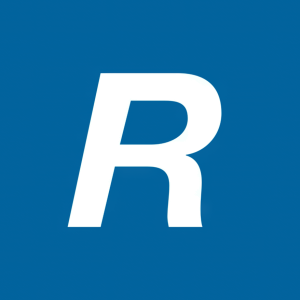Dupixent® (dupilumab) Approved in the U.S. as First and Only Treatment for Adolescents with Chronic Rhinosinusitis with Nasal Polyps (CRSwNP)
Rhea-AI Summary
Regeneron Pharmaceuticals and Sanofi announced FDA approval of Dupixent® (dupilumab) for adolescents aged 12-17 with inadequately controlled chronic rhinosinusitis with nasal polyps (CRSwNP). This expands the 2019 approval for adults. The FDA granted Priority Review, recognizing potential significant improvements in treating this serious condition.
CRSwNP affects about 9,000 adolescents in the U.S., causing breathing difficulties and reduced quality of life. Dupixent, as an add-on maintenance treatment, offers an alternative to systemic steroids and surgery, which often result in symptom recurrence.
The approval is based on positive results from two pivotal trials in adults (SINUS-24 and SINUS-52), showing significant improvements in nasal congestion, polyp size, and smell. Safety profile in adolescents is consistent with that observed in adults.
Positive
- FDA approval expands Dupixent's market to adolescents aged 12-17 with CRSwNP
- Priority Review status granted by FDA, indicating potential significant treatment improvements
- Dupixent is the first biologic specifically indicated for adolescents with CRSwNP
- Positive results from SINUS-24 and SINUS-52 trials showing significant improvements in key symptoms
- Dupixent is now treating over one million patients worldwide across multiple diseases
Negative
- None.
News Market Reaction 1 Alert
On the day this news was published, REGN declined 0.95%, reflecting a mild negative market reaction.
Data tracked by StockTitan Argus on the day of publication.
Following Priority Review, Dupixent is now available to patients as young as 12 years with inadequately controlled CRSwNP
Current treatment options leave many patients with uncontrolled disease and often result in the recurrence of nasal polyps
Dupixent is the leading biologic medicine for all five FDA-approved indications in new-to-brand prescriptions
TARRYTOWN, N.Y. and PARIS, Sept. 13, 2024 (GLOBE NEWSWIRE) -- Regeneron Pharmaceuticals, Inc. (NASDAQ: REGN) and Sanofi today announced that the U.S. Food and Drug Administration (FDA) has approved Dupixent® (dupilumab) as an add-on maintenance treatment for adolescent patients aged 12 to 17 years with inadequately controlled chronic rhinosinusitis with nasal polyps (CRSwNP). This approval expands the initial June 2019 FDA approval in CRSwNP for patients aged 18 years and older. The FDA evaluated Dupixent for this expanded indication under Priority Review, which is reserved for medicines that represent potentially significant improvements in efficacy or safety in treating serious conditions.
CRSwNP is a chronic disease of the upper airway, driven in part by type 2 inflammation, that obstructs the sinuses and nasal passages. It can lead to breathing difficulties, nasal congestion and discharge, reduced or loss of sense of smell and taste, facial pressure, sleep disturbance, and overall reduction in quality of life. Though systemic steroids and surgery are the standard treatment for CRSwNP in this age group and can provide relief, many patients may still experience uncontrolled symptoms and the recurrence of nasal polyps. In the U.S., approximately 9,000 adolescents live with inadequately controlled CRSwNP.
“We are pleased to bring the well-established efficacy and safety of Dupixent to the many children suffering from chronic rhinosinusitis with nasal polyps, which can make their breathing more laborious and difficult, and also deprive them of their sense of smell,” said George D. Yancopoulos, M.D., Ph.D., Board co-Chair, President and Chief Scientific Officer at Regeneron, and a principal inventor of Dupixent. “More than one million patients around the world are now being treated with Dupixent, from infants to adults, and across multiple diseases exacerbated by type 2 inflammation, from asthma to atopic dermatitis. Today’s approval reinforces our continuing commitment to transforming the treatment paradigms for these types of related diseases.”
“This latest approval for Dupixent marks the first time a biologic is specifically indicated for adolescents with chronic rhinosinusitis with nasal polyps, offering them an option beyond current standard of care,” said Brian Foard, Executive Vice President, Head, Specialty Care at Sanofi. “Dupixent is a cornerstone of our leadership in immunology, and this latest approval supports our continued commitment to chasing the miracles of science for patients with unmet medical needs.”
The approval is supported by evidence from two positive pivotal trials in adults with inadequately controlled CRSwNP. In the SINUS-24 and SINUS-52 trials, Dupixent significantly improved nasal congestion/obstruction severity, nasal polyp size and sense of smell, while also reducing the need for systemic corticosteroids or surgery at 24 weeks compared to placebo. The approval is also supported by pharmacokinetic data from adult and adolescent patients aged 12 years and older with moderate-to-severe asthma and adult patients with inadequately controlled CRSwNP, along with the safety data of Dupixent in adolescents aged 12 years and older with moderate-to-severe asthma.
In the SINUS-24 and SINUS-52 trials, the safety of Dupixent in adults was generally consistent with the known safety profile of Dupixent in its approved indications. Adverse events more commonly observed with Dupixent (≥
About Dupixent
Dupixent, which was invented using Regeneron’s proprietary VelocImmune® technology, is a fully human monoclonal antibody that inhibits the signaling of the interleukin-4 (IL-4) and interleukin-13 (IL-13) pathways and is not an immunosuppressant. The Dupixent development program has shown significant clinical benefit and a decrease in type 2 inflammation in Phase 3 trials, establishing that IL-4 and IL-13 are two of the key and central drivers of type 2 inflammation that play a major role in multiple related and often co-morbid diseases.
Regeneron and Sanofi are committed to helping patients in the U.S. who are prescribed Dupixent gain access to the medicine and receive the support they may need with the DUPIXENT MyWay® program. For more information, please call 1-844-DUPIXENT (1-844-387-4936) or visit www.DUPIXENT.com.
Dupixent has received regulatory approvals in more than 60 countries in one or more indications including certain patients with atopic dermatitis, asthma, CRSwNP, eosinophilic esophagitis, prurigo nodularis, chronic spontaneous urticaria, and chronic obstructive pulmonary disease in different age populations. More than 1,000,000 patients are being treated with Dupixent globally.
About Regeneron's VelocImmune® Technology
Regeneron's VelocImmune technology utilizes a proprietary genetically engineered mouse platform endowed with a genetically humanized immune system to produce optimized fully human antibodies. When Regeneron's co-Founder, President and Chief Scientific Officer George D. Yancopoulos was a graduate student with his mentor Frederick W. Alt in 1985, they were the first to envision making such a genetically humanized mouse, and Regeneron has spent decades inventing and developing VelocImmune and related VelociSuite® technologies. Dr. Yancopoulos and his team have used VelocImmune technology to create a substantial portion of all original, FDA-approved or authorized fully human monoclonal antibodies. This includes REGEN-COV® (casirivimab and imdevimab), Dupixent, Libtayo® (cemiplimab-rwlc), Praluent® (alirocumab), Kevzara® (sarilumab), Evkeeza® (evinacumab-dgnb), Inmazeb® (atoltivimab, maftivimab and odesivimab-ebgn) and Veopoz™ (pozelimab-bbfg).
Dupilumab Development Program
Dupilumab is being jointly developed by Regeneron and Sanofi under a global collaboration agreement. To date, dupilumab has been studied across more than 60 clinical trials involving more than 10,000 patients with various chronic diseases driven in part by type 2 inflammation.
In addition to the currently approved indications, Regeneron and Sanofi are studying dupilumab in a broad range of diseases driven in part by type 2 inflammation or other allergic processes in Phase 3 trials, including chronic spontaneous urticaria, chronic pruritus of unknown origin, chronic obstructive pulmonary disease with evidence of type 2 inflammation and bullous pemphigoid. These potential uses of dupilumab are currently under clinical investigation, and the safety and efficacy in these conditions have not been fully evaluated by any regulatory authority.
U.S. INDICATIONS
DUPIXENT is a prescription medicine used:
- to treat adults and children 6 months of age and older with moderate-to-severe eczema (atopic dermatitis or AD) that is not well controlled with prescription therapies used on the skin (topical), or who cannot use topical therapies. DUPIXENT can be used with or without topical corticosteroids. It is not known if DUPIXENT is safe and effective in children with atopic dermatitis under 6 months of age.
- with other asthma medicines for the maintenance treatment of moderate-to-severe eosinophilic or oral steroid dependent asthma in adults and children 6 years of age and older whose asthma is not controlled with their current asthma medicines. DUPIXENT helps prevent severe asthma attacks (exacerbations) and can improve your breathing. DUPIXENT may also help reduce the amount of oral corticosteroids you need while preventing severe asthma attacks and improving your breathing. DUPIXENT is not used to treat sudden breathing problems. It is not known if DUPIXENT is safe and effective in children with asthma under 6 years of age.
- with other medicines for the maintenance treatment of chronic rhinosinusitis with nasal polyps (CRSwNP) in adults and children 12 years of age and older whose disease is not controlled. It is not known if DUPIXENT is safe and effective in children with chronic rhinosinusitis with nasal polyps under 12 years of age.
- to treat adults and children 1 year of age and older with eosinophilic esophagitis (EoE), who weigh at least 33
pounds (15 kg). It is not known if DUPIXENT is safe and effective in children with eosinophilic esophagitis under 1 year of age, or who weigh less than 33pounds (15 kg). - to treat adults with prurigo nodularis (PN). It is not known if DUPIXENT is safe and effective in children with prurigo nodularis under 18 years of age.
IMPORTANT SAFETY INFORMATION
Do not use if you are allergic to dupilumab or to any of the ingredients in DUPIXENT®.
Before using DUPIXENT, tell your healthcare provider about all your medical conditions, including if you:
- have eye problems.
- have a parasitic (helminth) infection.
- are scheduled to receive any vaccinations. You should not receive a “live vaccine” right before and during treatment with DUPIXENT.
- are pregnant or plan to become pregnant. It is not known whether DUPIXENT will harm your unborn baby.
- A pregnancy registry for women who take DUPIXENT during pregnancy collects information about the health of you and your baby. To enroll or get more information call 1-877-311-8972 or go to https://mothertobaby.org/ongoing-study/dupixent/
- are breastfeeding or plan to breastfeed. It is not known whether DUPIXENT passes into your breast milk.
Tell your healthcare provider about all the medicines you take, including prescription and over-the-counter medicines, vitamins, and herbal supplements.
Especially tell your healthcare provider if you are taking oral, topical, or inhaled corticosteroid medicines; have asthma and use an asthma medicine; or have atopic dermatitis, chronic rhinosinusitis with nasal polyps, eosinophilic esophagitis, or prurigo nodularis and also have asthma. Do not change or stop your corticosteroid medicine or other asthma medicine without talking to your healthcare provider. This may cause other symptoms that were controlled by the corticosteroid medicine or other asthma medicine to come back.
DUPIXENT can cause serious side effects, including:
- Allergic reactions. DUPIXENT can cause allergic reactions that can sometimes be severe. Stop using DUPIXENT and tell your healthcare provider or get emergency help right away if you get any of the following signs or symptoms: breathing problems or wheezing, swelling of the face, lips, mouth, tongue or throat, fainting, dizziness, feeling lightheaded, fast pulse, fever, hives, joint pain, general ill feeling, itching, skin rash, swollen lymph nodes, nausea or vomiting, or cramps in your stomach-area.
- Eye problems. Tell your healthcare provider if you have any new or worsening eye problems, including eye pain or changes in vision, such as blurred vision. Your healthcare provider may send you to an ophthalmologist for an exam if needed.
- Inflammation of your blood vessels. Rarely, this can happen in people with asthma who receive DUPIXENT. This may happen in people who also take a steroid medicine by mouth that is being stopped or the dose is being lowered. It is not known whether this is caused by DUPIXENT. Tell your healthcare provider right away if you have: rash, chest pain, worsening shortness of breath, a feeling of pins and needles or numbness of your arms or legs, or persistent fever.
- Joint aches and pain. Some people who use DUPIXENT have had trouble walking or moving due to their joint symptoms, and in some cases needed to be hospitalized. Tell your healthcare provider about any new or worsening joint symptoms. Your healthcare provider may stop DUPIXENT if you develop joint symptoms.
The most common side effects include:
- Eczema: injection site reactions, eye and eyelid inflammation, including redness, swelling, and itching, sometimes with blurred vision, dry eye, cold sores in your mouth or on your lips, and high count of a certain white blood cell (eosinophilia).
- Asthma: injection site reactions, high count of a certain white blood cell (eosinophilia), pain in the throat (oropharyngeal pain), and parasitic (helminth) infections.
- Chronic Rhinosinusitis with Nasal Polyps: injection site reactions, eye and eyelid inflammation, including redness, swelling, and itching, sometimes with blurred vision, high count of a certain white blood cell (eosinophilia), gastritis, joint pain (arthralgia), trouble sleeping (insomnia), and toothache.
- Eosinophilic Esophagitis: injection site reactions, upper respiratory tract infections, cold sores in your mouth or on your lips, and joint pain (arthralgia).
- Prurigo Nodularis: eye and eyelid inflammation, including redness, swelling, and itching, sometimes with blurred vision, herpes virus infections, common cold symptoms (nasopharyngitis), dizziness, muscle pain, and diarrhea.
Tell your healthcare provider if you have any side effect that bothers you or that does not go away. These are not all the possible side effects of DUPIXENT. Call your doctor for medical advice about side effects. You are encouraged to report negative side effects of prescription drugs to the FDA. Visit http://www.fda.gov/medwatch, or call 1-800-FDA-1088.
Use DUPIXENT exactly as prescribed by your healthcare provider. It’s an injection given under the skin (subcutaneous injection). Your healthcare provider will decide if you or your caregiver can inject DUPIXENT. Do not try to prepare and inject DUPIXENT until you or your caregiver have been trained by your healthcare provider. In children 12 years of age and older, it’s recommended DUPIXENT be administered by or under supervision of an adult. In children 6 months to less than 12 years of age, DUPIXENT should be given by a caregiver.
Please see accompanying full Prescribing Information including Patient Information.
About Regeneron
Regeneron (NASDAQ: REGN) is a leading biotechnology company that invents, develops and commercializes life-transforming medicines for people with serious diseases. Founded and led by physician-scientists, our unique ability to repeatedly and consistently translate science into medicine has led to numerous approved treatments and product candidates in development, most of which were homegrown in our laboratories. Our medicines and pipeline are designed to help patients with eye diseases, allergic and inflammatory diseases, cancer, cardiovascular and metabolic diseases, neurological diseases, hematologic conditions, infectious diseases, and rare diseases.
Regeneron pushes the boundaries of scientific discovery and accelerates drug development using our proprietary technologies, such as VelociSuite®, which produces optimized fully human antibodies and new classes of bispecific antibodies. We are shaping the next frontier of medicine with data-powered insights from the Regeneron Genetics Center® and pioneering genetic medicine platforms, enabling us to identify innovative targets and complementary approaches to potentially treat or cure diseases.
For more information, please visit www.Regeneron.com or follow Regeneron on LinkedIn, Instagram, Facebook or X.
About Sanofi
We are an innovative global healthcare company, driven by one purpose: we chase the miracles of science to improve people's lives. Our team, across the world, is dedicated to transforming the practice of medicine by working to turn the impossible into the possible. We provide potentially life-changing treatment options and life-saving vaccine protection to millions of people globally, while putting sustainability and social responsibility at the center of our ambitions.
Sanofi is listed on EURONEXT: SAN and NASDAQ: SNY.
Regeneron Forward-Looking Statements and Use of Digital Media
This press release includes forward-looking statements that involve risks and uncertainties relating to future events and the future performance of Regeneron Pharmaceuticals, Inc. (“Regeneron” or the “Company”), and actual events or results may differ materially from these forward-looking statements. Words such as “anticipate,” “expect,” “intend,” “plan,” “believe,” “seek,” “estimate,” variations of such words, and similar expressions are intended to identify such forward-looking statements, although not all forward-looking statements contain these identifying words. These statements concern, and these risks and uncertainties include, among others, the nature, timing, and possible success and therapeutic applications of products marketed or otherwise commercialized by Regeneron and/or its collaborators or licensees (collectively, “Regeneron’s Products”) and product candidates being developed by Regeneron and/or its collaborators or licensees (collectively, “Regeneron’s Product Candidates”) and research and clinical programs now underway or planned, including without limitation Dupixent® (dupilumab) as an add-on maintenance treatment for adolescent patients aged 12 to 17 years with inadequately controlled chronic rhinosinusitis with nasal polyps; uncertainty of the utilization, market acceptance, and commercial success of Regeneron’s Products and Regeneron’s Product Candidates and the impact of studies (whether conducted by Regeneron or others and whether mandated or voluntary), including the studies discussed or referenced in this press release, on any of the foregoing; the likelihood, timing, and scope of possible regulatory approval and commercial launch of Regeneron’s Product Candidates and new indications for Regeneron’s Products, such as Dupixent for the treatment of chronic spontaneous urticaria, chronic pruritus of unknown origin, chronic obstructive pulmonary disease with evidence of type 2 inflammation, bullous pemphigoid, and other potential indications; the ability of Regeneron’s collaborators, licensees, suppliers, or other third parties (as applicable) to perform manufacturing, filling, finishing, packaging, labeling, distribution, and other steps related to Regeneron’s Products and Regeneron’s Product Candidates; the ability of Regeneron to manage supply chains for multiple products and product candidates; safety issues resulting from the administration of Regeneron’s Products (such as Dupixent) and Regeneron’s Product Candidates in patients, including serious complications or side effects in connection with the use of Regeneron’s Products and Regeneron’s Product Candidates in clinical trials; determinations by regulatory and administrative governmental authorities which may delay or restrict Regeneron’s ability to continue to develop or commercialize Regeneron’s Products and Regeneron’s Product Candidates; ongoing regulatory obligations and oversight impacting Regeneron’s Products, research and clinical programs, and business, including those relating to patient privacy; the availability and extent of reimbursement of Regeneron’s Products from third-party payers, including private payer healthcare and insurance programs, health maintenance organizations, pharmacy benefit management companies, and government programs such as Medicare and Medicaid; coverage and reimbursement determinations by such payers and new policies and procedures adopted by such payers; competing drugs and product candidates that may be superior to, or more cost effective than, Regeneron’s Products and Regeneron’s Product Candidates; the extent to which the results from the research and development programs conducted by Regeneron and/or its collaborators or licensees may be replicated in other studies and/or lead to advancement of product candidates to clinical trials, therapeutic applications, or regulatory approval; unanticipated expenses; the costs of developing, producing, and selling products; the ability of Regeneron to meet any of its financial projections or guidance and changes to the assumptions underlying those projections or guidance; the potential for any license, collaboration, or supply agreement, including Regeneron’s agreements with Sanofi and Bayer (or their respective affiliated companies, as applicable) to be cancelled or terminated; the impact of public health outbreaks, epidemics, or pandemics (such as the COVID-19 pandemic) on Regeneron's business; and risks associated with intellectual property of other parties and pending or future litigation relating thereto (including without limitation the patent litigation and other related proceedings relating to EYLEA® (aflibercept) Injection), other litigation and other proceedings and government investigations relating to the Company and/or its operations (including the pending civil proceedings initiated or joined by the U.S. Department of Justice and the U.S. Attorney's Office for the District of Massachusetts), the ultimate outcome of any such proceedings and investigations, and the impact any of the foregoing may have on Regeneron’s business, prospects, operating results, and financial condition. A more complete description of these and other material risks can be found in Regeneron’s filings with the U.S. Securities and Exchange Commission, including its Form 10-K for the year ended December 31, 2023 and its Form 10-Q for the quarterly period ended June 30, 2024. Any forward-looking statements are made based on management’s current beliefs and judgment, and the reader is cautioned not to rely on any forward-looking statements made by Regeneron. Regeneron does not undertake any obligation to update (publicly or otherwise) any forward-looking statement, including without limitation any financial projection or guidance, whether as a result of new information, future events, or otherwise.
Regeneron uses its media and investor relations website and social media outlets to publish important information about the Company, including information that may be deemed material to investors. Financial and other information about Regeneron is routinely posted and is accessible on Regeneron's media and investor relations website (https://investor.regeneron.com) and its LinkedIn page (https://www.linkedin.com/company/regeneron-pharmaceuticals).
Sanofi Forward-Looking Statements
This press release contains forward-looking statements as defined in the Private Securities Litigation Reform Act of 1995, as amended. Forward-looking statements are statements that are not historical facts. These statements include projections and estimates regarding the marketing and other potential of the product, or regarding potential future revenues from the product. Forward-looking statements are generally identified by the words “expects”, “anticipates”, “believes”, “intends”, “estimates”, “plans” and similar expressions. Although Sanofi’s management believes that the expectations reflected in such forward-looking statements are reasonable, investors are cautioned that forward-looking information and statements are subject to various risks and uncertainties, many of which are difficult to predict and generally beyond the control of Sanofi, that could cause actual results and developments to differ materially from those expressed in, or implied or projected by, the forward-looking information and statements. These risks and uncertainties include among other things, unexpected regulatory actions or delays, or government regulation generally, that could affect the availability or commercial potential of the product, the fact that product may not be commercially successful, the uncertainties inherent in research and development, including future clinical data and analysis of existing clinical data relating to the product, including post marketing, unexpected safety, quality or manufacturing issues, competition in general, risks associated with intellectual property and any related future litigation and the ultimate outcome of such litigation, and volatile economic and market conditions, and the impact that pandemics or other global crises may have on us, our customers, suppliers, vendors, and other business partners, and the financial condition of any one of them, as well as on our employees and on the global economy as a whole. The risks and uncertainties also include the uncertainties discussed or identified in the public filings with the SEC and the AMF made by Sanofi, including those listed under “Risk Factors” and “Cautionary Statement Regarding Forward-Looking Statements” in Sanofi’s annual report on Form 20-F for the year ended December 31, 2023. Other than as required by applicable law, Sanofi does not undertake any obligation to update or revise any forward-looking information or statements.
All trademarks mentioned in this press release are the property of the Sanofi group apart from VelociSuite and Regeneron Genetics Center.
| Regeneron Contacts: Media Relations Anna Hodge Tel: +1 914-255-6475 Anna.Hodge@regeneron.com | Investor Relations Vesna Tosic Tel: +1 914-847-5443 Vesna.Tosic@regeneron.com |
| Sanofi Contacts: Media Relations Sandrine Guendoul Tel: +33 6 25 09 14 25 Sandrine.Guendoul@sanofi.com Evan Berland Tel: +1 215-432-0234 Evan.Berland@sanofi.com Victor Rouault Tel: +33 6 70 93 71 40 Victor.Rouault@sanofi.com Timothy Gilbert Tel: +1 516-521-2929 Timothy.Gilbert@sanofi.com | Investor Relations Thomas Kudsk Larsen Tel: +44 7545 513 693 Thomas.Larsen@sanofi.com Alizé Kaisserian Tel: +33 6 47 04 12 11 Alize.Kaisserian@sanofi.com Arnaud Delepine Tel: +33 6 73 69 36 93 Arnaud.Delepine@sanofi.com Felix Lauscher Tel: +1 908-612-7239 Felix.Lauscher@sanofi.com |
| Keita Browne Tel: +1 781-249-1766 Keita.Browne@sanofi.com Nathalie Pham Tel: +33 7 85 93 30 17 Nathalie.Pham@sanofi.com Tarik Elgoutni Tel: +1 617-710-3587 Tarik.Elgoutni@sanofi.com Thibaud Châtelet Tel: +33 6 80 80 89 90 Thibaud.Chatelet@sanofi.com |









